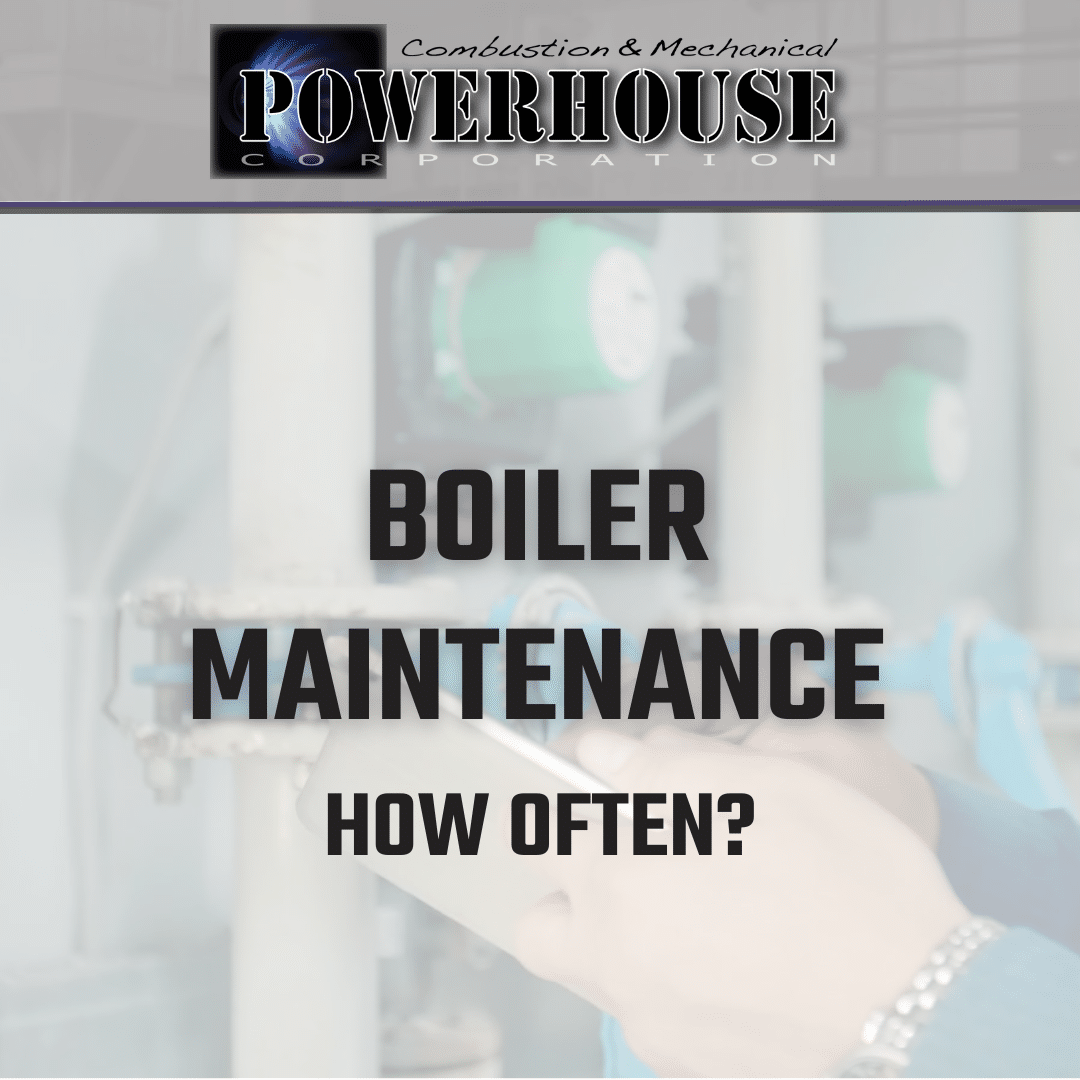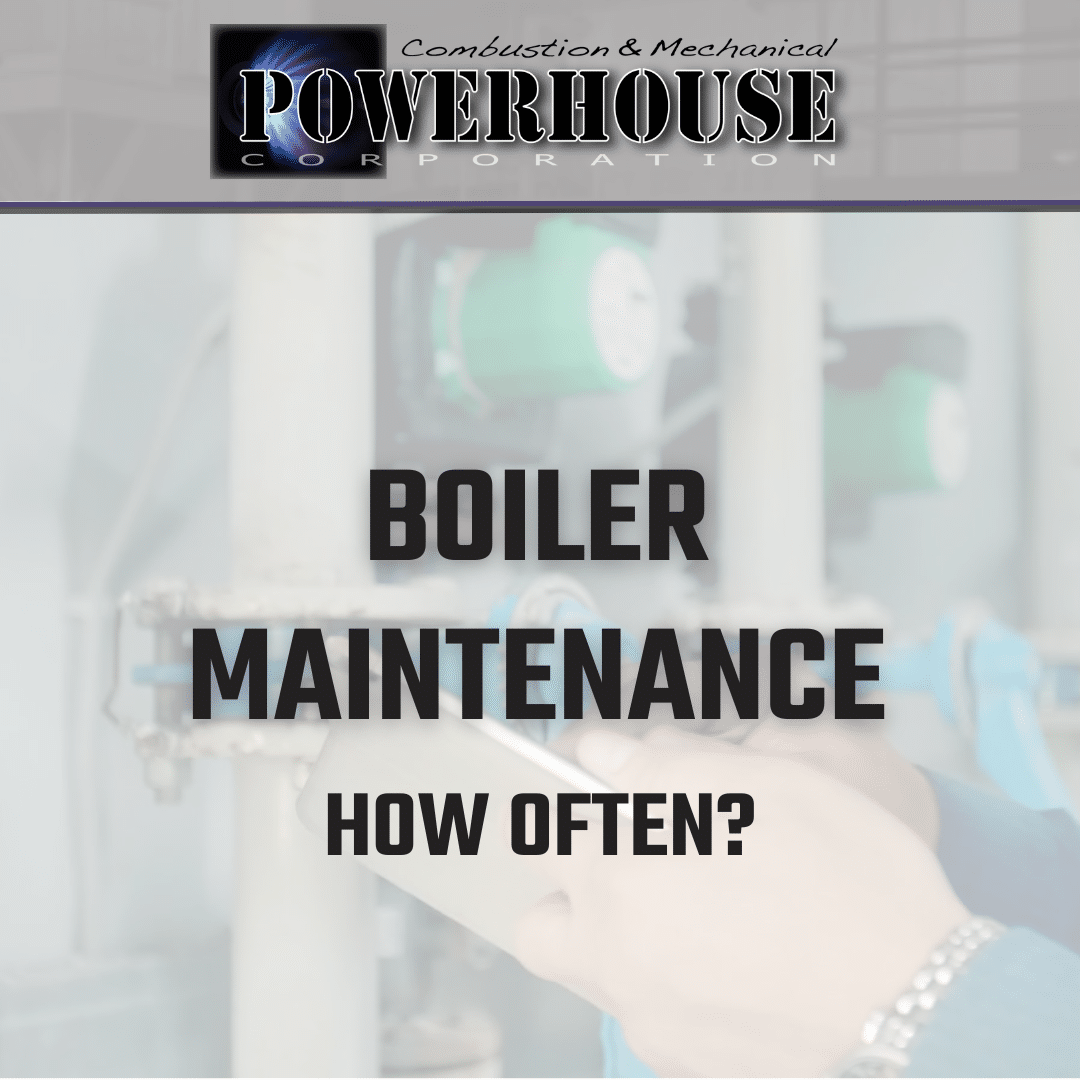Your Jump-Start Guide to Boiler Service Timing and Tasks
Read to the end for additional downloadable resources.
Estimated reading time: 4 minutes
Table of contents
Regular boiler servicing is essential to ensure safety, efficiency, and longevity. Neglecting maintenance can lead to costly repairs, system breakdowns, or even hazardous situations. Here’s a jump start guide on how often your boiler should be serviced and the tasks that should be performed.

Daily Tasks
- Check for leaks: Inspect around the boiler for any signs of water leakage.
- Monitor pressure levels: Ensure the pressure gauge reads within the optimal range.
- Inspect the flame: A healthy boiler should have a blue flame; yellow or orange flames may indicate issues.
Weekly Tasks
- Test safety controls: Check the safety valves, pressure relief valves, and other critical controls to ensure they function correctly.
- Blowdown the boiler: This process helps remove impurities and sediment from the water, maintaining efficiency and safety.
Monthly Tasks
- Inspect the burner: Ensure the burner assembly is clean and properly aligned.
- Check the water level: Verify that the water level is within the required range to avoid dry firing.
- Inspect gaskets: Look for signs of wear or leakage around gaskets and replace them if necessary.
Quarterly Tasks
- Conduct a combustion analysis: Analyze the combustion gases to ensure the boiler operates efficiently and within safe emission limits.
- Lubricate moving parts: Apply appropriate lubrication to motor bearings, pumps, and other mechanical parts to prevent wear and tear.
- Test safety devices: Re-test all safety devices, including low-water cutoffs and limit controls, to ensure they are working correctly.
Annual Tasks
- Full system inspection: Hire a certified technician to perform a comprehensive inspection, including a review of all controls, safety devices, and the overall system.
- Internal inspection and cleaning: The boiler should be shut down, cooled, and opened up for a thorough internal inspection and cleaning. This includes descaling, checking for corrosion, and replacing any worn parts.
- Boiler tune-up: Adjust the burner, clean or replace the fuel filters, and ensure optimal combustion efficiency.
- Check insulation: Inspect and repair any damaged or worn insulation on pipes and the boiler itself.
Additional Considerations
- R Stamp Repairs: For any significant repairs or alterations to pressure vessels, ensure they are performed by a certified professional with R Stamp certification.
- Manufacturer’s Recommendations: Always refer to the manufacturer’s maintenance manual for any specific instructions or intervals that might differ from general practices.
- Regulatory Compliance: Ensure that your boiler maintenance schedule complies with local regulations and industry standards to avoid fines and operational disruptions.
Conclusion
Regular boiler servicing is vital for maintaining safe and efficient operations. By following this comprehensive maintenance schedule, you can prevent unexpected breakdowns, extend the life of your boiler, and ensure compliance with all safety standards. For professional boiler servicing and R Stamp repairs, trust Powerhouse Combustion & Mechanical Corporation to keep your system running smoothly. Contact us today to learn more about our services.
About Powerhouse Combustion & Mechanical Corporation
Powerhouse Combustion & Mechanical Corporation is a trusted provider of industrial combustion and mechanical services, specializing in high-pressure steam boilers, pressure vessel welding, burner retrofits, and more. Our expert team is dedicated to ensuring safety, reliability, and compliance across all our services. Whether you need routine maintenance or emergency repairs, Powerhouse Combustion is here to keep your critical facilities operating at their best.
Related Links and Resources

